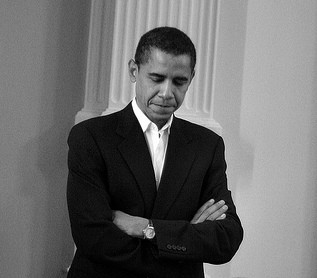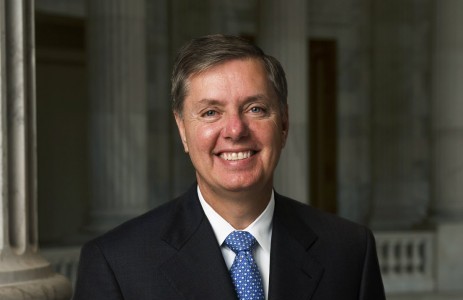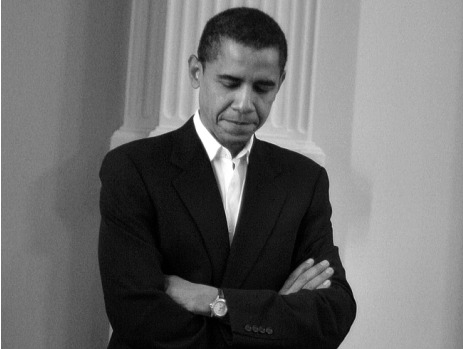 Photo: Mr WrightLately, I’ve been mulling over how climate/energy policy relates to the larger politics of progressivism (what this post and this post have been hinting at). It comes up somewhat obliquely in the big Rolling Stone interview with Obama.
Photo: Mr WrightLately, I’ve been mulling over how climate/energy policy relates to the larger politics of progressivism (what this post and this post have been hinting at). It comes up somewhat obliquely in the big Rolling Stone interview with Obama.
Glenn Hurowitz — and a few others — think Obama has been so bad on environmental issues that environmentalists should try to mount a primary challenge in 2012. Let’s assume, for the sake of argument, that the environmental critique is valid (I don’t really agree, but just assume). Does it therefore follow that greens should work to see him gone? Here’s how Obama characterizes his own record:
We have accomplished an incredible amount in the most adverse circumstances imaginable. I came in and had to prevent a Great Depression, restore the financial system so that it functions, and manage two wars. In the midst of all that, I ended one of those wars, at least in terms of combat operations. We passed historic health care legislation, historic financial regulatory reform and a huge number of legislative victories that people don’t even notice. [earlier: “the credit-card reform bill, or the anti-tobacco legislation, or preventing housing and mortgage fraud.”] We wrestled away billions of dollars of profit that were going to the banks and middlemen through the student-loan program, and now we have tens of billions of dollars that are going directly to students to help them pay for college. We expanded national service more than we ever have before.
The Recovery Act alone represented the largest investment in research and development in our history, the largest investment in infrastructure since Dwight Eisenhower, the largest investment in education — and that was combined, by the way, with the kind of education reform that we hadn’t seen in this country in 30 years — and the largest investment in clean energy in our history.
At least on domestic policy, that’s pretty convincing. A lot of lives, present and future, will be improved that wouldn’t have been if Republicans had been in charge. Should those lives be discounted because environmental progress in the last two years was inadequate? Should environmentalists run a purely vindictive campaign the only “success” of which could be to unseat a president who has achieved more for progressives in the past two years than any president since Nixon?
Conservatives understand, in a way liberals don’t, that they rise or fall together. Gun groups and anti-tax groups and religious groups all pitch in to defend other’s causes. Even if a given conservative constituency has to take one for the team periodically, they all benefit from the ongoing strength of a simple, consistent conservative brand. Americans know exactly what it means to vote Republican: lower taxes, strong national defense, family values. Those stories have been told so often that they no longer need to be told at all. They’ve become ambient, background landscape upon which foreground battles play out. Contrary evidence, of which there is a constant stream, doesn’t fit the frame and is discarded. The brand has been cemented.
What do Americans get when they vote for a Democrat? What is the progressive brand? Progressives are remarkably silent on the issue, so the work of telling their story has been left to the opposition: big government socialism, soft on defense, elitist. Rather than referring back to a larger frame, progressive activists run from battle to battle mounting one-off, poll-chasing “campaigns,” each of which must build a case and a set of narratives virtually from scratch. Look at the fumbling and bumbling that went on these past two years trying to push for something called “cap-and-trade.” Progressives groped at polar bears, then green jobs, then the clean energy race, flailing this way and that with each new focus group. All conservatives had to do was reach for “tax” and the stories, associations, and implications came with it, off the shelf, no explication needed. Their campaign was pre-strategized, their coalition pre-assembled and pre-trained.
Progressives have no shared story, no strong brand. So every constituent group — enviros, unions, immigration reformers, education reformers, financial reformers, social justice advocates, feminists — fights its battles more or less alone, clamoring for attention, implicitly competing with the others. Each constituency can muster facts and policies, but as a coalition they are strangely reticent to evoke a larger story about values and purpose. (This is of course what message dudes like George Lakoff and Sean Wilentz have been telling the left for years.)
Only in a political jungle where each interest group fights solely for itself could it make sense for greens to try to take out a president fighting a flawed battle for progressive values to put in place one that will mean suffering for virtually every progressive constituency. Only in a jungle could greens feel justified putting the gains of those who will have better access to health insurance or student loans at risk because they didn’t get what they wanted.
Rather than flipping a bird to other progressive constituencies, I’m more keen to figure out how to bridge the strange distance between them. For my part, I think of climate/energy policy as deeply enmeshed in and of a piece with progressivism. I favor action on climate change and clean energy because I’m a progressive. It puzzles me that lots of enviros and lots of progressives seem to think (or at least act) otherwise.



